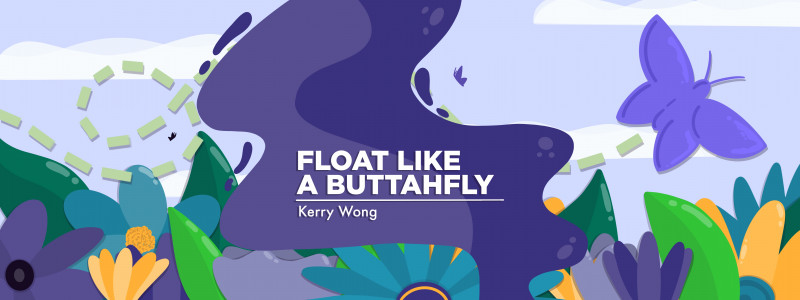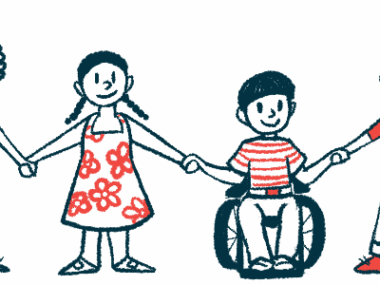Living in the ‘Wizarding World’ of sarcoidosis
Yes, I've been thinking a lot about Harry Potter lately
Written by |

Whether I’m resting after a long day at the infusion center or busy working on my next big project, my TV is almost always on. It’s mostly background noise, something familiar so I don’t have to pay attention. It could be a “Law & Order” marathon or a jukebox musical featuring popular songs as part of the story. Lately, it’s been the Harry Potter movies.
Between cable, on-demand, and streaming services, there’s a Harry Potter film playing somewhere just about any time of the day or night. My phone can clearly sense this, so it’s been recommending clips, outtakes, and behind-the-scenes videos with the cast. It even showed me Harry Potter-themed eyeglass frames. Of course, I ordered them.
This constant exposure has worked its way into my mind and turned Hogwarts into the Wizarding World of Sarcoidosis.
At Hogwarts
“Fear of a name only increases fear of the thing itself.” — Hermione Granger, “Harry Potter and the Chamber of Secrets”
While Harry and his friends find trouble nearly everywhere they go, one main villain looms throughout the series. Initially referred as “He Who Must Not Be Named,” the wizard Voldemort has caused great harm and reminds me of my rare disease, sarcoidosis. For years, I struggled to understand what was causing the pain, fatigue, shortness of breath, and rashes I was experiencing. It seemed to be “That Which Must Not Be Named,” and the absence of a diagnosis made it even scarier.
Like Voldemort, my disease doesn’t act alone. Sarcoidosis sends its minions after me by way of small fiber/autonomic neuropathy, arthritis, erythema nodosum (painful red bumps on my lower legs), and more. Countless conditions seem to aggravate one another, making each more harmful.
Fortunately, like Harry, I don’t have to fight this battle alone.
Hogwarts offers classes on all things magical with professors and advisers who excel in their fields. Students also learn from each other as they share adventures. For my part, I can attend sarcoidosis and rare disease conferences to learn from organizations, researchers, and healthcare professionals. Also, some of the best teachers are other sarcoidosis patients and advocates, whose experience is invaluable.
Just as the students learn about potions, sarcoidosis patients learn about medications. These, too, must be just the right combination of ingredients to do the job effectively. Otherwise, they may not work at all or cause side effects that can be as dangerous as the explosions seen in potions class.
Casting its spell
“Words are, in my not so humble opinion, our most inexhaustible source of magic, capable of both inflicting injury and remedying it.” — Professor Albus Dumbledore, “Harry Potter and the Deathly Hallows: Part 2”
We may encounter spells, but we can also cast our own throughout our life with sarcoidosis.
One type of spell cast upon us is when doctors fail to diagnose us. I spent four years being told there was nothing wrong with me or that I was “just depressed.” Those words hurt. Even worse, left untreated, sarcoidosis can progress and cause irreparable damage.
When we tell our stories, they can work magic throughout our community. We spend our lives surrounded by people who don’t know anything about our rare disease (let’s call them Muggles), which only adds to our isolation. When we meet another sarcoidosis warrior, we cast an unbreakable spell: non est solum — you are not alone.
Our incantations can inspire change on a grander scale through advocacy. Speaking up for ourselves by sharing our experiences, hardships, and needs can conjure accessible accommodations at work, greater understanding and better treatment from those around us, and even needed legislation. Just last month, my governor signed a bill into law that requires insurance to cover biomarker testing, partly because advocates like me asked her to.
The witches and wizards of Hogwarts use enchanted tools to assist in their endeavors — a broom to fly on and a magic wand, most notably. Sarcoidosis patients require adaptive items to offset the challenges our disease brings us. I use a cane, a walker, or a motorized scooter to meet my mobility needs. Some require portable oxygen to breathe. And phone apps come in handy when memory fails.
The Patronus is a bright, protective charm that’s shaped like an animal. By definition, it is “a pure, protective magical concentration of happiness and hope.” There’s no question about it, my Patronus is a butterfly!
“Happiness can be found, even in the darkest of times, if one only remembers to turn on the light.” — Dumbledore, “Harry Potter and the Prisoner of Azkaban”
Note: Sarcoidosis News is strictly a news and information website about the disease. It does not provide medical advice, diagnosis, or treatment. This content is not intended to be a substitute for professional medical advice, diagnosis, or treatment. Always seek the advice of your physician or other qualified health provider with any questions you may have regarding a medical condition. Never disregard professional medical advice or delay in seeking it because of something you have read on this website. The opinions expressed in this column are not those of Sarcoidosis News or its parent company, Bionews, and are intended to spark discussion about issues pertaining to sarcoidosis.







kimberly reese
It was genius how you compare sarcoidious to Harry Potter. I dont see you on twitter
🦋 Kerry Wong
Thanks, Kimberly - it was a lot of fun to go through it all!
I'm not on Twitter anymore, but you can still find me on Facebook and Instagram. Hope you're doing well!
~🦋
Shirley Logan
Thank you for your inspirational writing in a 'wizardy' style. Living with sarcoidosis has so many challenges both from the disease but also medical ignorance which seems moreso in Australia. Fatigue from the disease and the need to self-educate and self-advocate is also exhausting too. The butterfly is also very symbolic for me.
🦋 Kerry Wong
Yes, Shirley - it is SO important to learn as much as we can and advocate for ourselves (though I do wish we didn't need to so much).
~🦋
Beverly Jane Kolesnik
I loved reading Kerry Wong’s article. I have felt so alone trying to understand and find help for Sarcoidosis. So many medical professionals just give you a blank stare when you ask them about it. I look forward to the day I find someone to really talk with about it.
🦋 Kerry Wong
Yes, Beverly ... it's so hard when no one understands. You may be able to find a more knowledgable provider at the WASOG/FSR recognized sarcoidosis clinics: https://www.wasog.org/about/wasog-sarcoidosis-clinics.html. And there are plenty of support groups online (virtual and in person meetings, as well as groups on social media) - hopefully that can help you find that connection.
~🦋